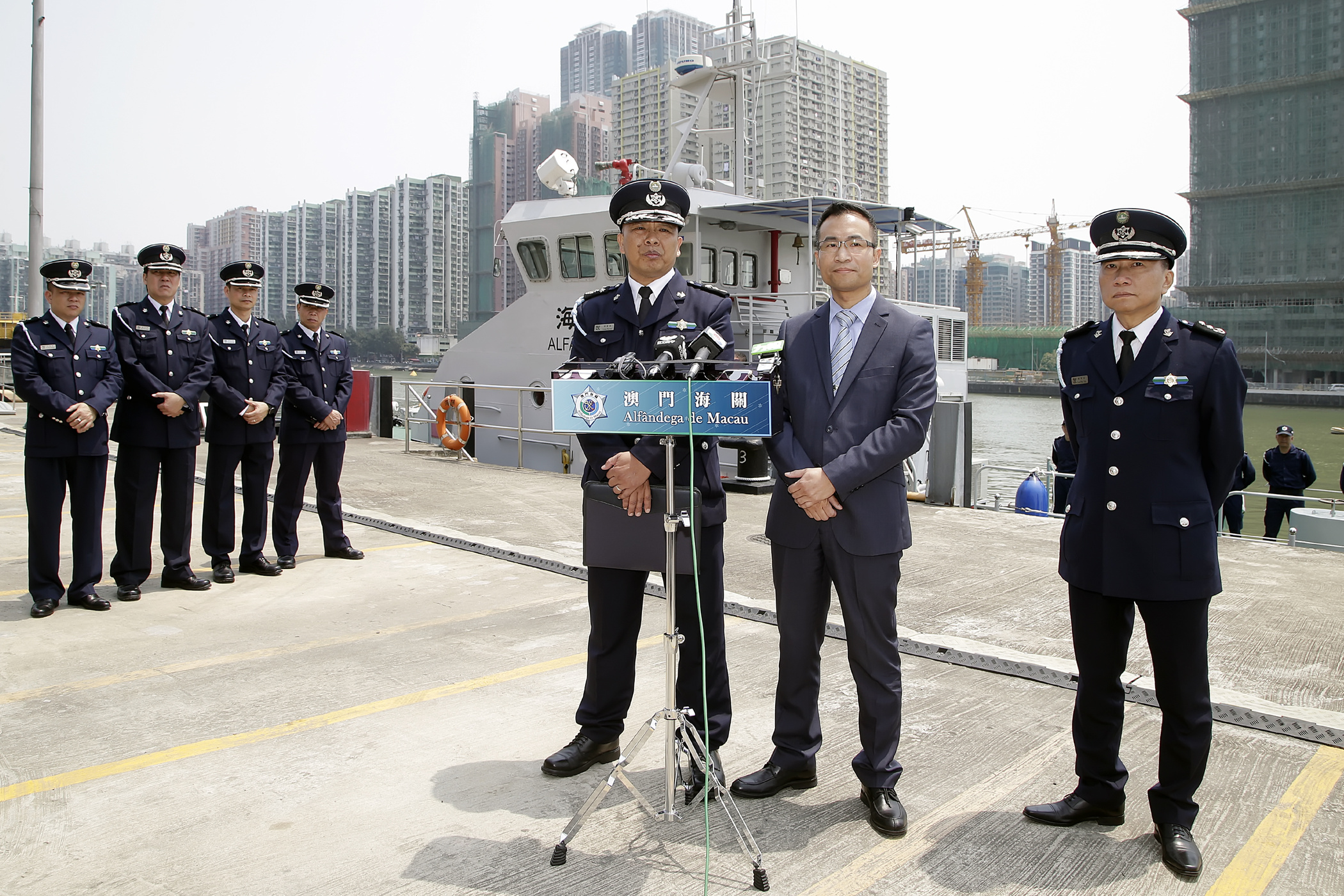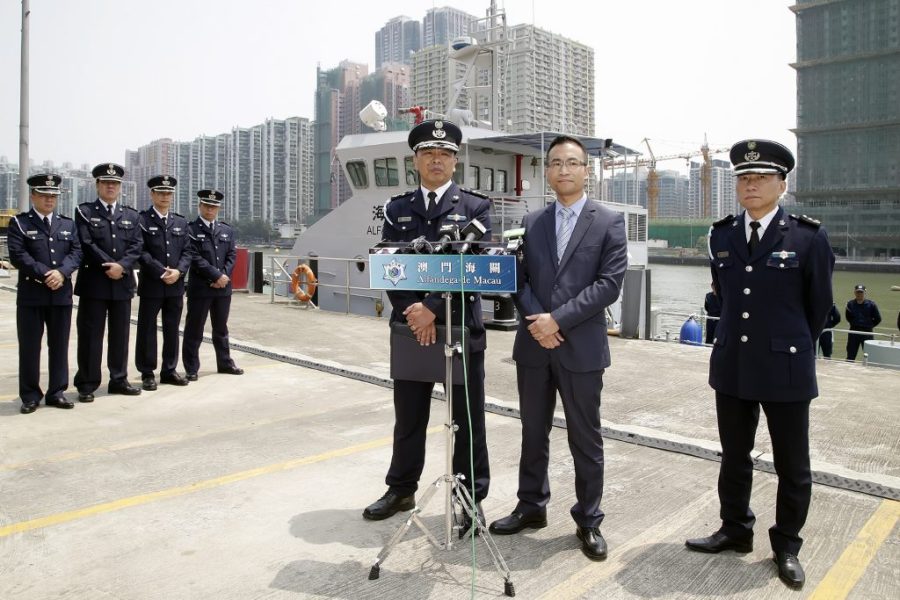The Macau Customs Service said on Tuesday that criminal gangs have come up with new ways to smuggle illegal immigrants to Macau.
The gangs now smuggle smaller numbers of illegal immigrants each time, but more frequently, to avoid detection by the authorities, the Customs Service said. Macau’s Customs Service also performs the functions of the city’s coast guard.
Addressing the press briefing, Leong Wa Kan, who heads the Macau Customs Service’s Marine Enforcement Department, said that the Customs Service caught 373 illegal immigrants last year, while 451 illegal immigrants were recorded in 2015, 17 percent decrease year-on-year.
The Customs Service seized 28 boats used to smuggle illegal immigrants into the city last year, while only 19 such vessels were confiscated in 2015, Leong said.
According to Leong, the Customs Service transferred 30 suspected “snakeheads” to the Public Prosecution Office (MP) last year, while the number in 2015 was 19, a 58 percent increase. “Snakehead” is a Cantonese slang term for people smugglers.
Leong said that the significant increase in the number of “snakeheads” caught showed that there as been a growing trend for gangs to smuggle smaller numbers of illegal immigrants each time, but more frequently.
According to Leong, since Macau was granted jurisdiction over its coastal waters in late 2015, the Macau Customs Service has set up three operational bases, at the land reclamation area Zone A, at Pac On Ferry Terminal in Taipa, and at Concordia Industrial Park on the north-west shore of Coloane.
With its operational command centre in the Marine Enforcement Department Building in Ilha Verde, along with the three operation bases, Macau Customs Service patrol vessels are able to arrive at any particular location in the city’s maritime area within 30 minutes when responding to emergencies, Leong said, adding that the Customs Service divides the 85-square-kilometre zone into six sectors.
Leong mentioned as an example that when Macau Customs Service officers apprehend illegal immigrants in the city’s maritime areas, they now can simply transfer the suspected “snakeheads” to the Public Prosecution Office, while in the past, when Macau had no jurisdiction over its coastal waters, it was more difficult for them to implement the law.
Leong also said that busier maritime traffic in the city’s coastal waters in recent years was one of the challenges for the Customs Service.
(Macau News / The Macau Post Daily)






